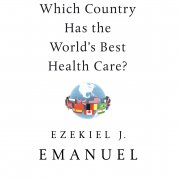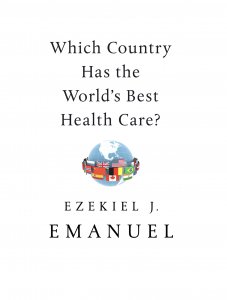7 days in healthcare (September 5th-11th, 2022)

Summary
From the point of view of Biomedicine, to highlight the work that shows an association between artificial sweeteners and increased cardiovascular risk. Also that air pollution causes lung cancer.
As far as Global Health is concerned, apart from the serious humanitarian crises in Pakistan and Somalia, the most promising is the new malaria vaccine, which could be operational as early as 2023.
Regarding international health policy, assisted suicide and euthanasia are news in Canada (where the rate of euthanasia is very high and there is concern) and in France (which is considering passing a law). Macron has launched a major national debate on this issue, following a report to appear next week from the Ethics Committee. This great debate on such a delicate subject was missed in Spain. Certain issues should not be subject only to conjunctural parliamentary majorities, but should be preceded by a great national debate. It is also worth mentioning that Chile rejected the draft Constitution in a referendum. According to an article published in El País, doubts about the possibility of choosing the health system (the continuity of the ISAPRES, as health insurers are called in Chile), is one of the causes of this rejection.
If we talk about national health policy (Spain), it should be noted that Aragón proposes a great debate on the efficiency of the National Health System, a brave and valuable initiative. It will first analyze the Aragonese health system, and then share that analysis with the rest of the autonomies. Also that the Ministry of Health promises to change the law to favor the local manufacture of medicines. It is also worth underlining the pronouncement of the Catalan Evaluation Agency, on the need for a state policy for the digital transformation of the health system and the promotion of telemedicine.
In the field of companies, from the international point of view, to mention the purchase of Signify a home care group by CVS (an American pharmaceutical chain), in a process in which Amazon also showed interest. In terms of news at the national level, to highlight the great investment of Novartis in our country.
Biomedicine
- A prospective study showing the association between the consumption of artificial sweeteners and cardiovascular risk is published in the British Medical Journal (https://www.bmj.com/content/378/bmj-2022-071204)
- Scientists discover how air pollution causes lung cancer. As people smoke less, air pollution is emerging as a cause of lung cancer. The cause is very small particles of 2.5 microns (https://www.ft.com/content/17016da0-f61a-4ecf-a9fd-7102a28bd2b4)
- Breast implants may be associated with cancer, FDA warns (https://www.nytimes.com/2022/09/08/health/breast-implants-cancer.html)
Global Health
- The floods in Pakistan are producing a true humanitarian and health disaster. More than a third of the country with floods, affecting 33 million people. 6.4 million need immediate assistance (https://www.thelancet.com/journals/lancet/article/PIIS0140-6736(22)01732-9/fulltext)
- A new malaria vaccine produces promising results. Malaria killed 640,000 people in 2020, most of them African children under the age of five. GSK’s RTS,S vaccine prevents 44% of malaria episodes, while the new R21, from Oxford University, prevents 80% (https://www.economist.com/science-and-technology/2022 /09/08/a-new-malaria-vaccine-shows-promising-results)
- Invest in health technologies to make pregnancy safer in Africa. 99% of maternal deaths occur in developing countries and more than half in sub-Saharan Africa (https://www.economist.com/by-invitation/2022/09/08/invest-in-health-care-technology -to-make-pregnancy-safer-in-africa-says-temie-giwa-tubosun)
- Drought may condemn Somalia to famine by the end of the year, warns the United Nations (https://www.theguardian.com/global-development/2022/sep/05/drought-likely-to-push-parts -of-somalia-into-famine-by-december-warns-un)
- Europe, far from the eradication of tuberculosis in 2030, according to the European Center for Disease Prevention and Control, ECDC (https://www.consalud.es/pacientes/infecciosas/europa-lejos-erradicacion-tuberculosis-en -2030_119949_102.html)
International health policy
- Monkeypox
- How to protect the vulnerable from monkeypox, article in Science (https://www.science.org/doi/10.1126/science.ade7115)
- COVID-19
- How covid vaccine nasal sprays can change the pandemic, although there are few human trials so far, article in Nature, (https://www.nature.com/articles/d41586-022-02824-3)
- Covid-19 and children, article in Science (https://www.science.org/doi/10.1126/science.ade1675)
- China: alerts, tests and confinements in more than 30 cities (https://elpais.com/sociedad/2022-09-08/china-se-encalla-en-la-covid-alertas-tests-y-confinements- in-more-than-30-cities.html
- Controversial ruling in the USA: annulment Roe v Wade
- The impact of the annulment of the Roe v Wade ruling not only affects abortion clinics, but also doctors and the health system as a whole (https://www.nytimes.com/2022/09/10/us/abortion -bans-medical-care-women.html)
- Physician-assisted suicide and euthanasia
- Concerns about the increase in cases of assisted death in Canada, where rates of assisted suicide and euthanasia are higher than in the Netherlands and Belgium (https://www.thelancet.com/journals/lancet/article/PIIS0140-6736( 22)01733-0/fulltext)
- Macron launches a major citizen debate on euthanasia and the end of life, based on an opinion from the Ethics Committee, which will appear next Tuesday, September 13 (https://www.lemonde.fr/societe/ article/2022/09/08/emmanuel-macron-confirme-le-lancement-d-une-convention-citoyenne-sur-la-fin-de-vie_6140767_3224.html)
- Other themes
- Backlogs and waiting lists reach a record 6.8 million in the UK (https://www.ft.com/content/e53e247e-376a-4d72-bd19-9c1f99c0bb65)
- Chile flatly rejects the new Constitution, doubts about the possibility of choosing a health system, among the three most important causes of rejection, according to a survey (https://elpais.com/chile/2022-09-05/chile-rechaza -outright-the-new-constitution.html)
National health policy
- Monkeypox
- Monkeypox infections are slowing down in Spain (https://www.consalud.es/pacientes/infecciosas/contagios-viruela-mono-ralentizacion_119922_102.html)
- COVID
- The cumulative incidence in Spain falls (https://amp.redaccionmedica.com/directo/coronavirus-ultimas-noticias/20220527)
- 10 million doses to Spain against omicron (https://www.consalud.es/pacientes/especial-coronavirus/covid-19-espana-esta-semana-10-millones-dosis-adaptadas-variantes_119801_102.html)
- Other themes
- The deadliest summer in Spain, 20,000 deaths more than expected (https://www.eldiario.es/sociedad/verano-mortal-1950-espana-registra-20-000-muertes-esperadas-junio-agosto_1_9278237.html )
- Aragon seeks a great national debate on the future and the efficiency of the National Health System (https://www.consalud.es/autonomias/aragon/aragon-busca-aliados-gran-debate-nacional-sobre-estitución-sns_120001_102 .html)
- The Ministry of Health will modify the law to favor the local manufacture of medicines (https://www.eleconomista.es/salud/noticias/11935741/09/22/Sanidad-promete-modificar-la-ley-para-favorecer- the-investment-pharmaceutical.html)
- The birth rate will fall more in the next ten years (https://www.lavanguardia.com/vida/20220905/8485759/natalidad-caera-aun-mas-proximos-diez-anos.html)
- The Community of Madrid accelerates the construction of the Sierra Norte hospital (https://www.elconfidencial.com/espana/madrid/2022-09-05/ayuso-acelera-hospital-sierra-norte-licitacion-septiembre_3483285/)
- The Catalan Evaluation Agency calls for a single state strategy on telemedicine (https://www.diariomedico.com/medicina/politica/la-agencia-de-evaluacion-catalana-pide-una-estrategia-unica-estatal-sobre- telemedicine.html)
Companies
- International News
- FDA approves Daxxify, a new anti-wrinkle therapy, competitor to Botox (https://www.nytimes.com/2022/09/08/health/wrinkle-drug-botox-daxxify-fda.html)
- CVS buys the home care group Signify for $8 billion, in competition with Amazon, which also wanted to buy this group (https://www.ft.com/content/6a41c9c9-9d47-4c69-8d4c-b221c2d25073)
- Pfizer stops manufacturing the first version of its covid vaccine and focuses on the one adapted to omicron (https://www.elespanol.com/invertia/observatorios/sanidad/20220907/pfizer-fabricar-primera-version-covid -adapted-omicron/701180145_0.html)
- Novavax receives the approval of the EMA for its booster vaccine against covid (https://www.plantadoce.com/empresa/novavax-recibe-el-visto-bueno-de-la-ema-para-su- booster-vaccine-against-covid-19.html)
- National News
- Vitaldent opens three new clinics in Seville, Jaén and Cáceres (https://www.plantadoce.com/empresa/vitaldent-abre-tres-nuevas-clinicas-dentales-en-sevilla-jaen-y-caceres.html)
- Novartis invests 77 million in its antibiotic and nuclear medicine factories in Spain (https://www.diariomedico.com/farmacia/industria/empresas/novartis-invests-77-millones-en-sus-fabricas-de-antibioticos- and-nuclear-medicine-in-spain.html)
- Grifols closes an agreement in Canada to promote immunoglobulins (https://cincodias.elpais.com/cincodias/2022/09/07/companies/1662566808_361235.html)








